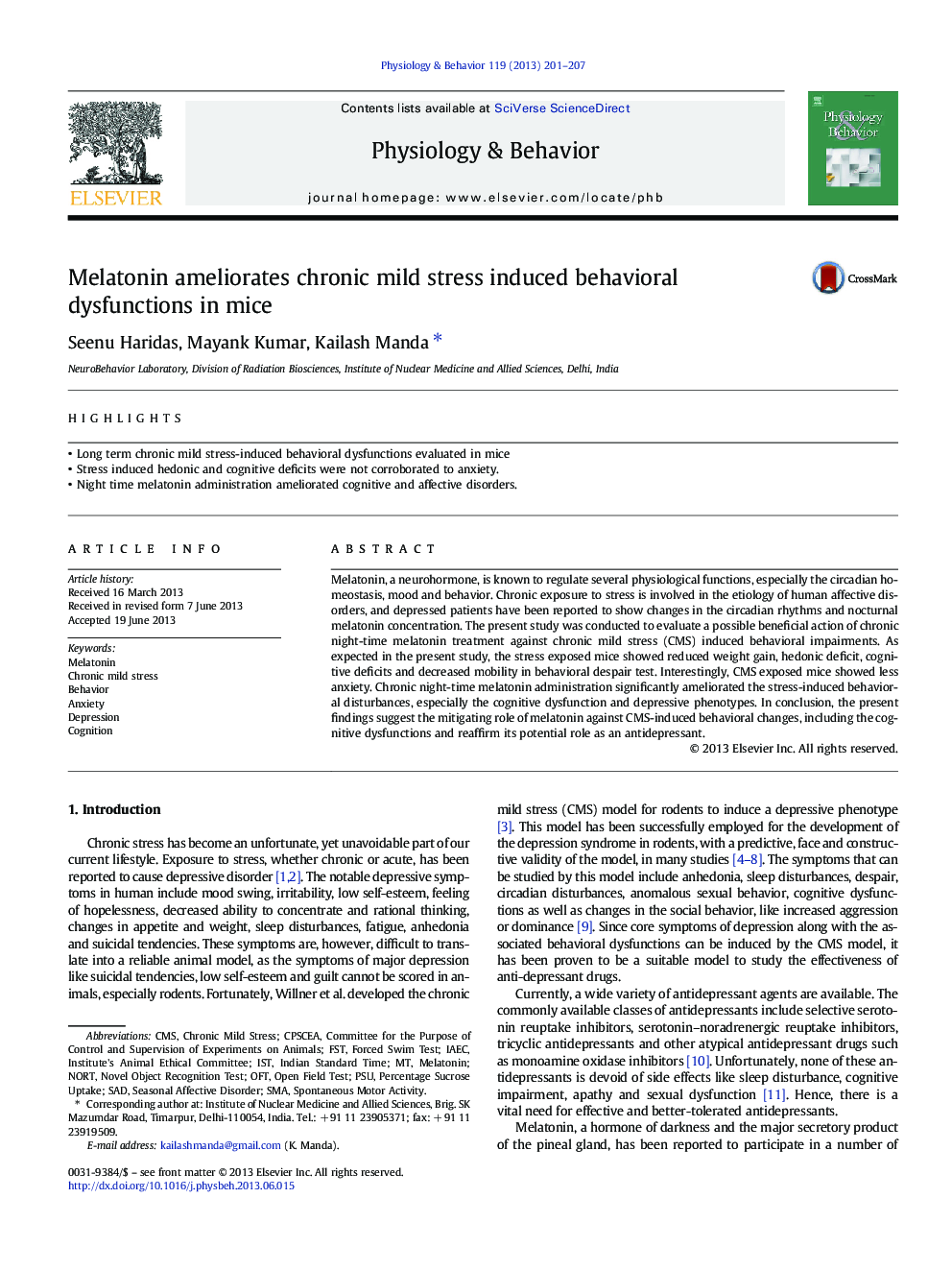| Article ID | Journal | Published Year | Pages | File Type |
|---|---|---|---|---|
| 5924822 | Physiology & Behavior | 2013 | 7 Pages |
â¢Long term chronic mild stress-induced behavioral dysfunctions evaluated in miceâ¢Stress induced hedonic and cognitive deficits were not corroborated to anxiety.â¢Night time melatonin administration ameliorated cognitive and affective disorders.
Melatonin, a neurohormone, is known to regulate several physiological functions, especially the circadian homeostasis, mood and behavior. Chronic exposure to stress is involved in the etiology of human affective disorders, and depressed patients have been reported to show changes in the circadian rhythms and nocturnal melatonin concentration. The present study was conducted to evaluate a possible beneficial action of chronic night-time melatonin treatment against chronic mild stress (CMS) induced behavioral impairments. As expected in the present study, the stress exposed mice showed reduced weight gain, hedonic deficit, cognitive deficits and decreased mobility in behavioral despair test. Interestingly, CMS exposed mice showed less anxiety. Chronic night-time melatonin administration significantly ameliorated the stress-induced behavioral disturbances, especially the cognitive dysfunction and depressive phenotypes. In conclusion, the present findings suggest the mitigating role of melatonin against CMS-induced behavioral changes, including the cognitive dysfunctions and reaffirm its potential role as an antidepressant.
